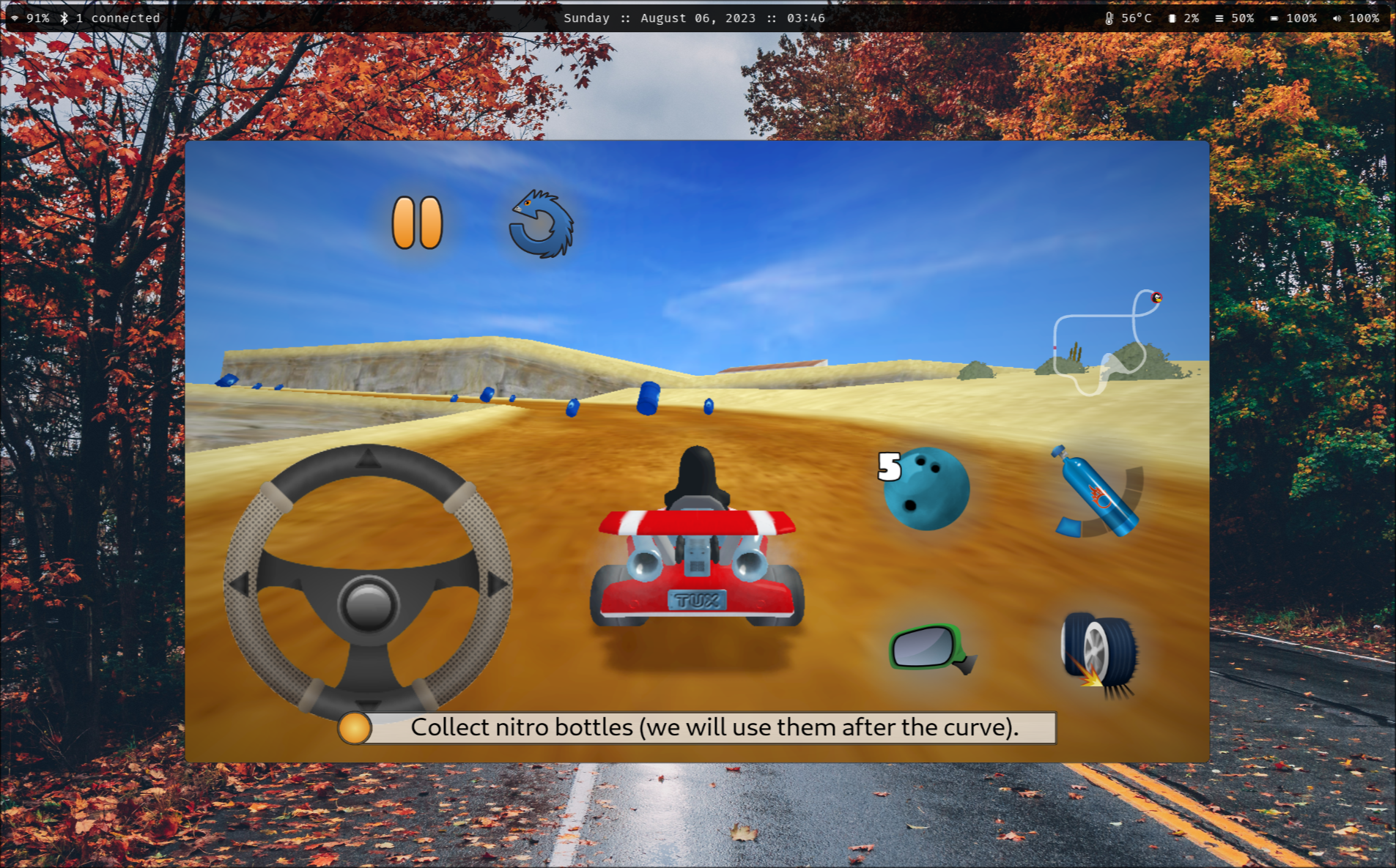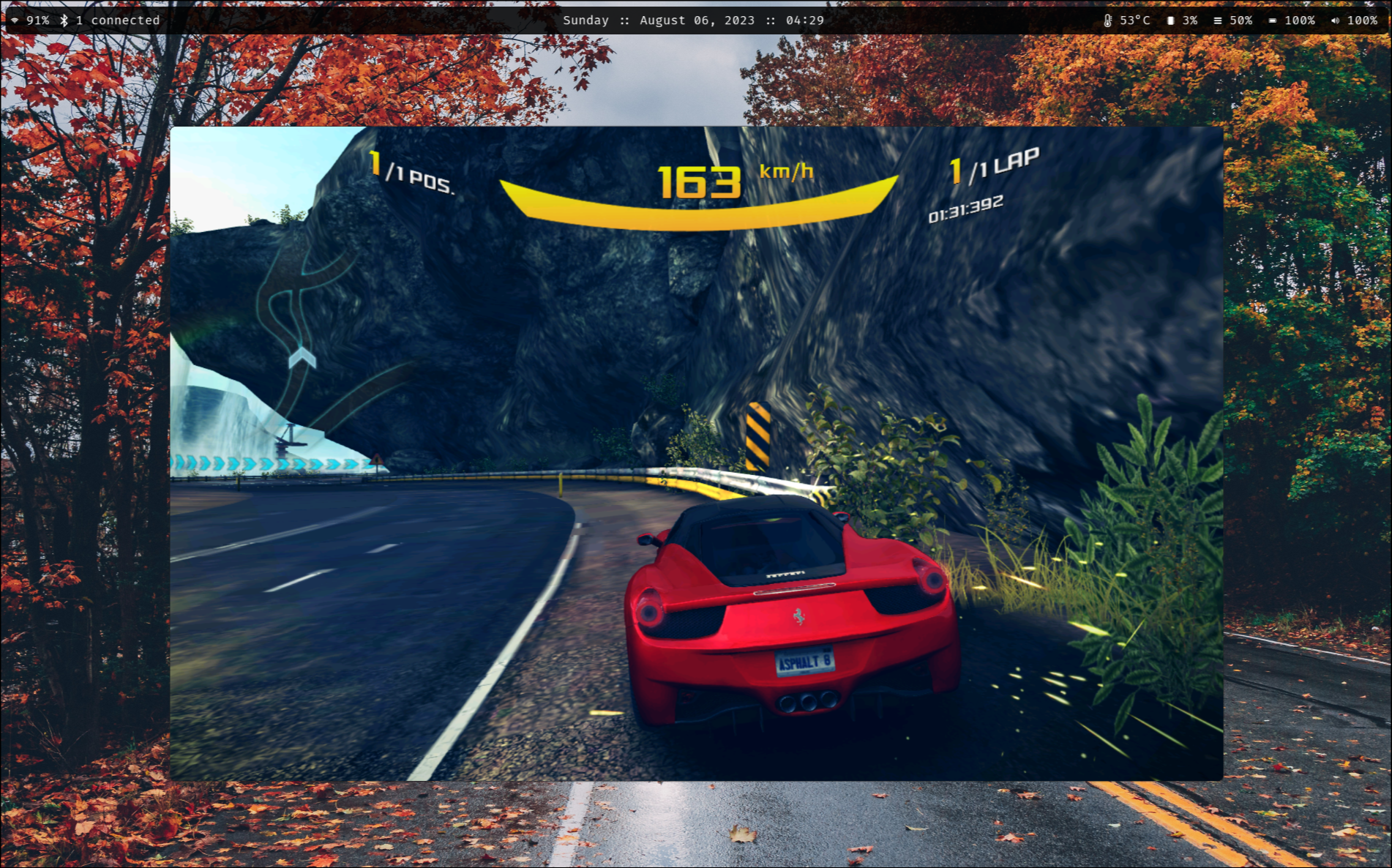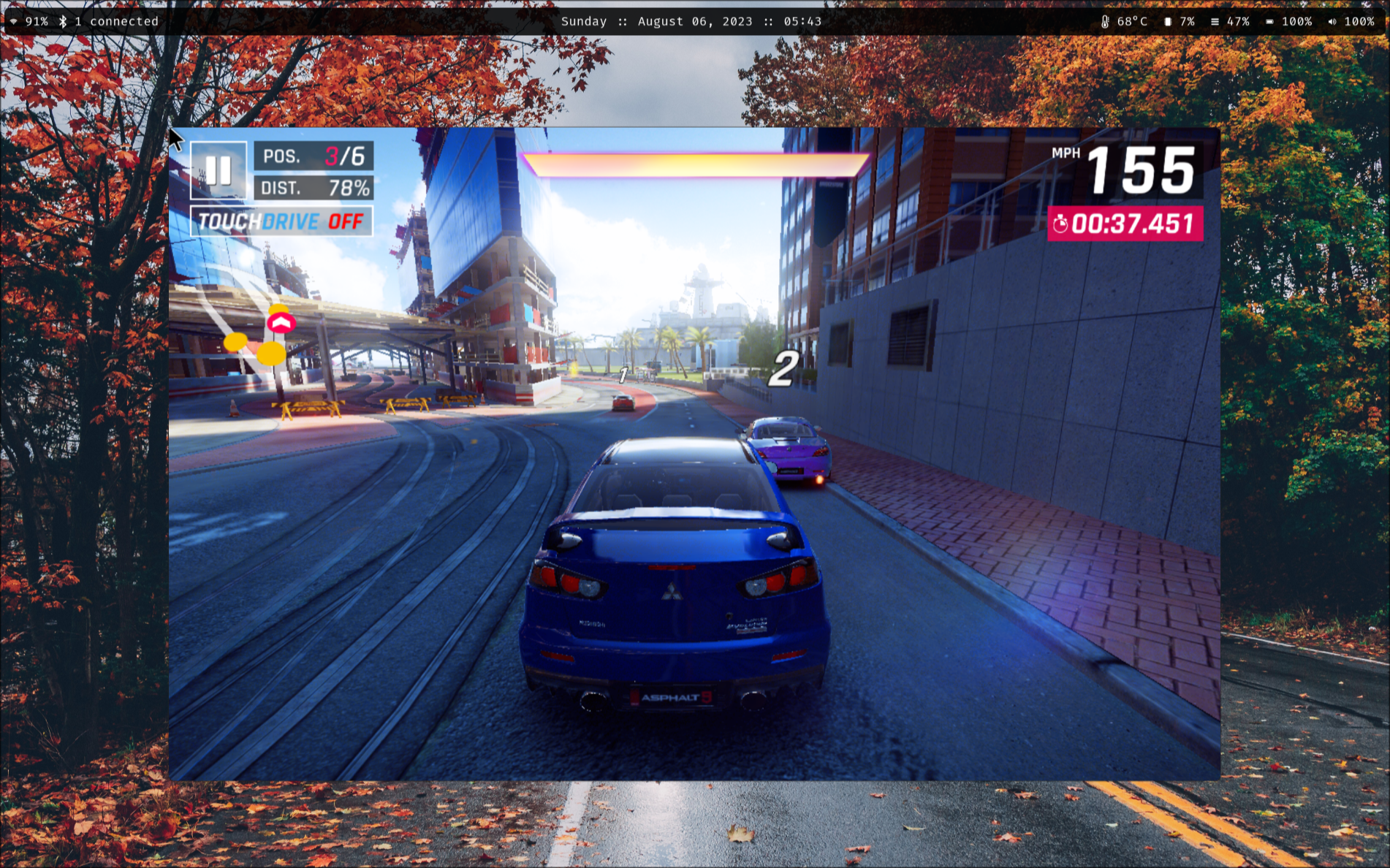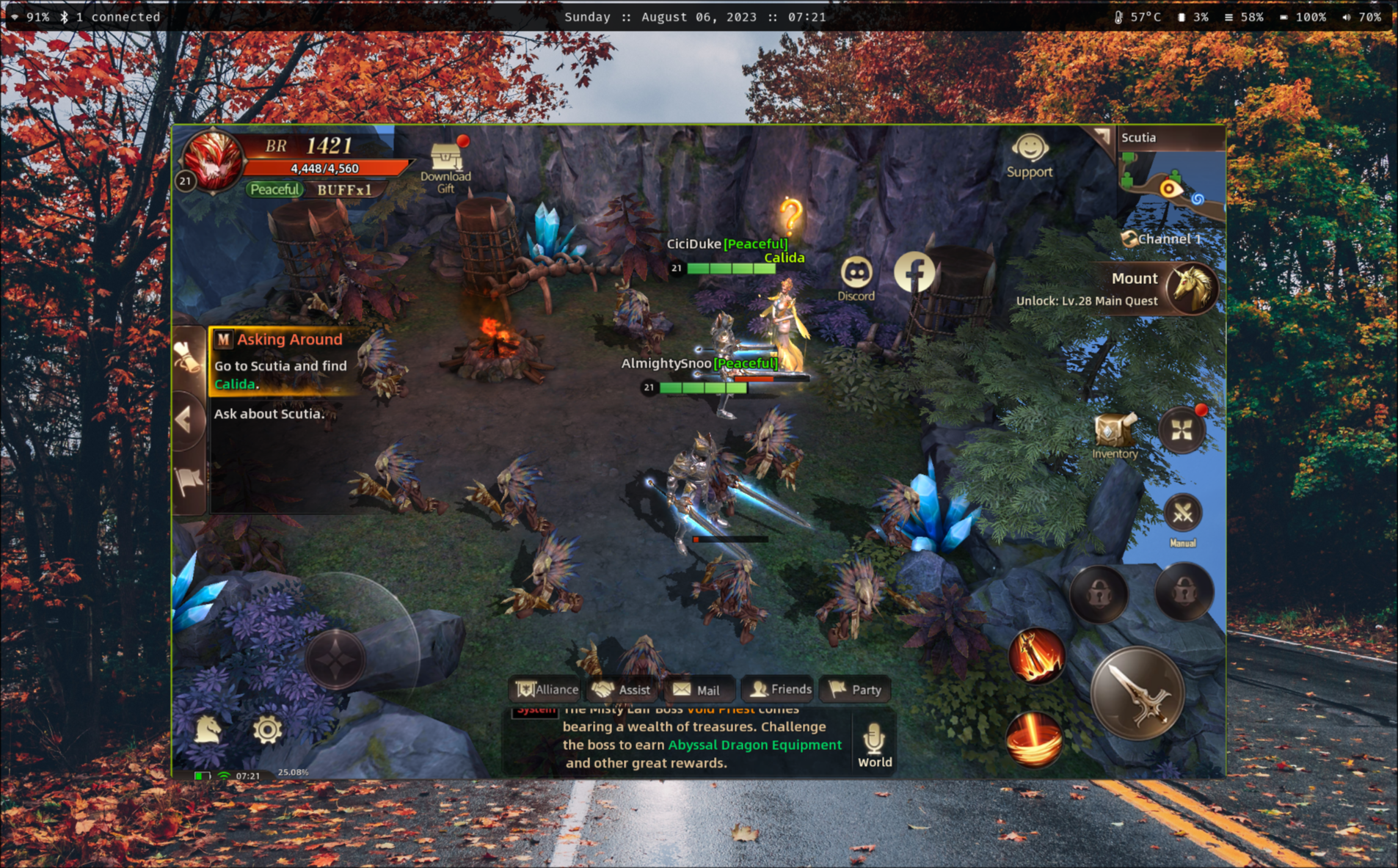On Windows, the go-to emulators are Bluestacks and NoxPlayer (both closed source), especially when gaming is concerned. Unfortunately they are not available on Linux, and the Nox devs’ dismissive attitude towards Linux also makes it unlikely they’ll ever make a Linux port:

So apart from trying to run these two using Wine, what emulators are out there on Linux that yield a sufficiently decent performance to make Android games playable?
EDIT: looks like Waydroid is a winner, see the comments.
Maybe try this one? I’ve read it’s one of the better ones.
Just tried it out and the 3D performance is amazing!
Installed it on Arch Linux following the wiki (https://wiki.archlinux.org/title/Waydroid) and didn’t need to do anything regarding the
bindermodule as I have thelinux-zenkernel installed.Need to initialize it with the GApps image and then certify the emulated device by following the instructions on their doc (https://docs.waydro.id/faq/google-play-certification) in order to have access to the Play Store.
Some games like Genshin Impact cannot be installed as they’re marked as incompatible but many are installable.
EDIT: Actually Genshin Impact and similar games also work, it’s just that they are ARM64 apps and you need an ARM -> x86 translation layer for them to work. In particular you need to add
libhoudinito your Waydroid install. There’s a script that simplifies this: https://github.com/casualsnek/waydroid_script. However, games that have only ARM64 binaries, like Genshin Impact, will be slow. Games like Asphalt 8 & 9 and League of Angels run at native speeds because they have x86 binaries.
A few screenshots:
Obligatory SuperTuxKart

Asphalt 8

Asphalt 9

League of Angels: Chaos

The physical keyboard isn’t detected by Asphalt 8 though, however it is properly handled by Asphalt 9. So I guess it’s going to really depend on the game.
deleted by creator
I assume yes since SteamOS 3 is based on Arch Linux (which is what I tried Waydroid on), but I haven’t tried as I don’t have a SteamDeck. I’ve found two guides though:
deleted by creator
[This comment has been deleted by an automated system]
It’s worth noting that the
bindermodule you’re referring to is already included in the Linux Zen kernel, which is usually very stable and trusted by Linux gamers. It may be possible however thatbinderdoes funny things with the Nvidia driver. On my AMD system I have no proprietary drivers and everything works out of the box withlinux-zen.[This comment has been deleted by an automated system]



